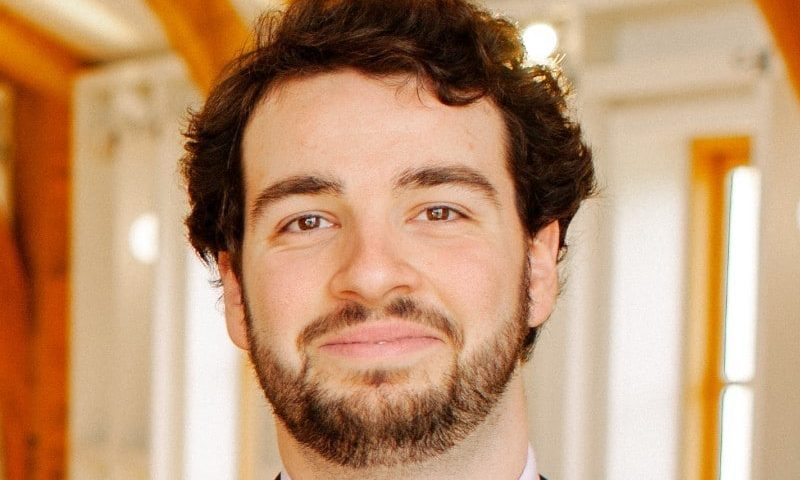
Corruption and Governance MA (online)
Gain the expert knowledge, frameworks and skills needed to devise and implement anti-corruption strategies across varied industries and markets.
Talk to our Admissions Team
Enquire nowGain the expert knowledge, frameworks and skills needed to devise and implement anti-corruption strategies across varied industries and markets.
 Delivered 100% online
Delivered 100% online Our distinct Masters offers an interdisciplinary and contemporary perspective on corruption and the modern social issues faced globally across different contexts and industries today.
Delivered 100% online, you’ll discover what corruption is and the factors that cause it, as well as how to combat and prevent corruption in your organisation and beyond.
You’ll learn from leading academics from the globally renowned Centre for the Study of Corruption, the UK’s 1st centre dedicated to interdisciplinary research, policy impact and teaching on anti-corruption.
Using real world case-studies including those of your peers and your own professional experiences, you’ll examine corrupt behaviour and activity through a unique lens of regional, sectoral and organisational contexts.
A version of this course is also available to study on campus →
Why did I choose the University of Sussex? I think because they offered a programme that was number one, part-time, and number two, online. And it was just easy to balance with my job and other commitments I have.
The faculty have been extremely accommodating given the way the course is structured on a very flexible basis. People are not necessarily flowing from one module automatically to the next.
What I’ve really felt on this online course is that the learning materials are such a high quality. They prepare, kind of, really consumable content for us on what we should be learning.
The course is flexible in the way it allows you to study. So, I have control of when I can do certain things. If, for example, at work I have lots of deadlines coming up I could block out a module and then re-join it in the next module.
A couple of the anxieties I had before I started the course was: how does it all work? But it was all very simple. Within the first week you go on there, it’s all very easy to use and navigate. Any questions I have had I was able to ask the Student Success Team and they get back to you very promptly.
The flexibility of having an app, having a website, having all the materials you need, just makes life a lot easier.
Different methods of learning definitely helped. I found that podcasts for me were really helpful to get the information in.
I found it great if I’m watching videos and lectures to be able to fast forward them, pause them, rewind them.
The reading list has actually been something that I’ve really enjoyed because I was a bit, kind of ,worried about not having access to the library, but the reading list has been carefully, like, selected and it’s so easy to get onto the books, and also for me it’s been great because you can download them as PDFs.
So, people connected really well. We did lots of sharing online and actually we feel really connected so there’s lots of people that I met on the course that I’ll now stay in touch with.
I think it’s really great that the cohort is international for the online course. So I’ve made amazing professional connections with people working in Canada, Asia, all over Europe, as well as all over the UK.
I’d like to end up working in the field. I’m going to take my time now I’ve finished the course and again make sure I end up somewhere I really want to. I think the most important thing for me would be somewhere I feel like I’m actually making a difference for the future
Each module lasts seven weeks and is delivered via Canvas, a state-of-the-art online learning platform, which can be accessed by a computer, tablet or smartphone so you can truly study whenever and wherever you like. You can take control of your schedule by fitting the recommended 20 hours study time per week around your existing commitments and lifestyle.
In order to graduate the course, all of the below modules must be successfully completed.
The course uses multiple assessments methods to assess students’ knowledge, competence development and engagement through individual and groupwork exercises, such as written reports, simulations, essays, project reports, MCQs, and portfolios. An indication for the likely assessment methods of this module is given, though this may be subject to change.
To learn more about each module, please click on the title to read the module description and the types of assessments.
A lower second-class (2.2) undergraduate honours degree* or above from any UK university or international equivalent. Your qualification should be in a social sciences, humanities or business-oriented subject. You may also be considered for the course if you have other professional qualifications or experience of equivalent standing.
Applicants whose first language is not English (and whose first degree was not taught in English) need to supply evidence of IELTS (Academic) high level (6.5 overall, including at least 6.0 in each component).
Course fee: £12,660
Cost per module: £1,055
Flexibility is at the heart of our online courses: fees can be paid on a module-by-module basis, or as a single fee at the start of the course. You are required to pay the first module fee of £1,055 to secure your place on the course. You may also consider corporate sponsorship and employer funding. Our Admissions Team will be able to assist you with next steps.
Course fees will remain fixed for 24 months from your initial course start date. Thereafter, the course fee will rise at a rate of 2.5% per calendar year (subject to rounding for administration purposes).
If you have previously graduated from an undergraduate, postgraduate or PhD course with the University of Sussex you will be eligible* for a 20% discount on this online course.
Find out more about the alumni discount and eligibility criteria.
*T&Cs apply.
Please visit our Fees and Funding page for more information.
The Corruption and Governance online course is also available to be taken as a Postgraduate Certificate (PG Cert).
The PG Cert is made up of the first four modules of the course and provides students with the key foundations and understanding of what corruption is, what causes it and how to tackle it.
Module 1: Defining corruption
Module 2: Measuring corruption
Module 3: Explaining corruption
Module 4: Fighting corruption
Students studying the Postgraduate Certificate who would like to progress to the full Masters will be accepted onto the Masters course following successful completion of all four modules.*
PG Cert cost: £4,220
Cost per module: £1,055
Fees can be paid at the start of the course or on a module-by-module basis, with students required to pay the first module fee of £1,055 to secure their place on the course.
The PG Cert can be completed in a minimum of 8 months or a maximum of 20 months if you choose to take a break from study.
*Providing the University is offering the Masters at the time of transfer
As a graduate of this course, you’ll be equipped with the intellectual and practical skills to help you fight corruption and implement preventative measures to bring about real change.
With a Masters that looks at corruption from a range of different organisations, sectors and markets, you’ll be able to apply your developed skillset to a wide variety of roles and companies, and on a local or global scale.
This course is for professionals working in roles directly responsible for corruption prevention e.g. an Anti-Bribery Officer or a Financial Compliance Manager, and also those in roles that need to be aware of the landscape such as professionals working in finance, law, business development, and operations management.
On completion of the course, you’ll join an ambitious community of corruption and governance alumni who have gone on to work in a variety of roles, including Consultant for Transparency International, Investigations Officer at Zambia’s Anti-Corruption Commission, Major Incident Manager at IBM, Legal Officer at the Attorney General’s Chambers of Malaysia, accountability professional at the Federal Mexican Government, and a Policy Analyst for Financial Action Task Force in France – to name a few.
Bring about real change
By choosing to study our online Corruption and Governance Masters, you’ll gain both the theoretical knowledge and practical skills required to understand the complexities of defining, measuring and counteracting corruption from a global perspective across a multitude of sectors.
You will also:
Professor Dan Hough, Course Director and Head of the Department of Politics, talks about how his research at our renowned Centre for the Study of Corruption will help the Met clamp down on international crime.
We have to draw a line between a genuine mistake that was meant in the best interests of those involved and a selfish act that hurts others.
[Question] How do you define corruption?
Corruption is essentially when someone abuses a public office or a public role for private gain, so it’s about the process, it’s about how they use resources or powers to look after themselves or their friends or some sort of distant acquaintance in a way that’s not in the job spec.
The definition of corruption, there is quite a lot – I would argue the principles remain consistent – but the context means that you have to move with where you are and because people don’t think about corruption first, they think about what they’re doing, whether it’s, you know, playing football or whether it’s governing a country, whatever it may be, you often find yourself in a position you didn’t expect to be in. It’s often a long process where someone will get drawn into, often, a series of relationships that lead them to do something that appears totally inconsequential and yet, is certainly what I would understand as corruption.
The Sussex Centre for the Study of Corruption is the only interdisciplinary centre for the analysis of corruption in Europe and arguably the world – depends how you define these things – and that gives us a lot of, you know, a lot of scope to do really interesting research. We can bring on economists, we can bring on political scientists, [there’s a] strong development studies tradition at Sussex as well. All of these different approaches can, at different times, in different ways, hopefully help us make sort of real impact-generating research.
We’re going to work with the international anti-corruption unit of the Metropolitan Police to try and help them coordinate their activities because one of the problems they have is they know that corrupt acts happen in Britain, but often they involve international jurisdictions. People will then sort of move abroad, people will then have done the transaction abroad, but it goes through London, so they’re trying to find ways of ensuring that money laundering, ensuring that people using corrupt proceeds to buy things like houses, to buy things like the education of their children, is a little bit more difficult in the UK. But they can’t do that on their own, they need information from other anti-corruption units around the world, so we’re looking at how they can do that and become a little bit more efficient in getting basically getting criminals up in front of the judge.
Humans are imperfect beasts, we all make mistakes, but a mistake is not a corrupt act, okay? And I think we have to draw a line between a genuine mistake that was meant in the best interests of those involved and a selfish act that hurts others.



“Learning online is absolutely a great experience. I’ve gotten to know so many people around the world that are interested in this topic. Their opinions and experiences are so valuable because context matters when studying corruption. I’ve collaborated closely with colleagues on several assignments and I’m now very proud to also call them my friends.”
If you’d like to find out more about this course, please complete this form to receive information from our Admissions Team.

Interested in anti-corruption? Here are 5 reasons why Sussex’s online masters in Corruption and Governance might be right for you.

Follow James Bartoli-Edwards, a Corruption and Governance MA (online) student, as he walks you through a typical day in his life.

Sussex Professor Robert Barrington explores the role political corruption has played in bringing about the war in Ukraine.